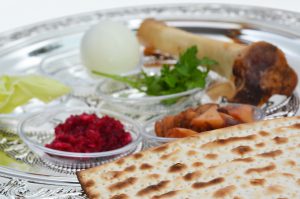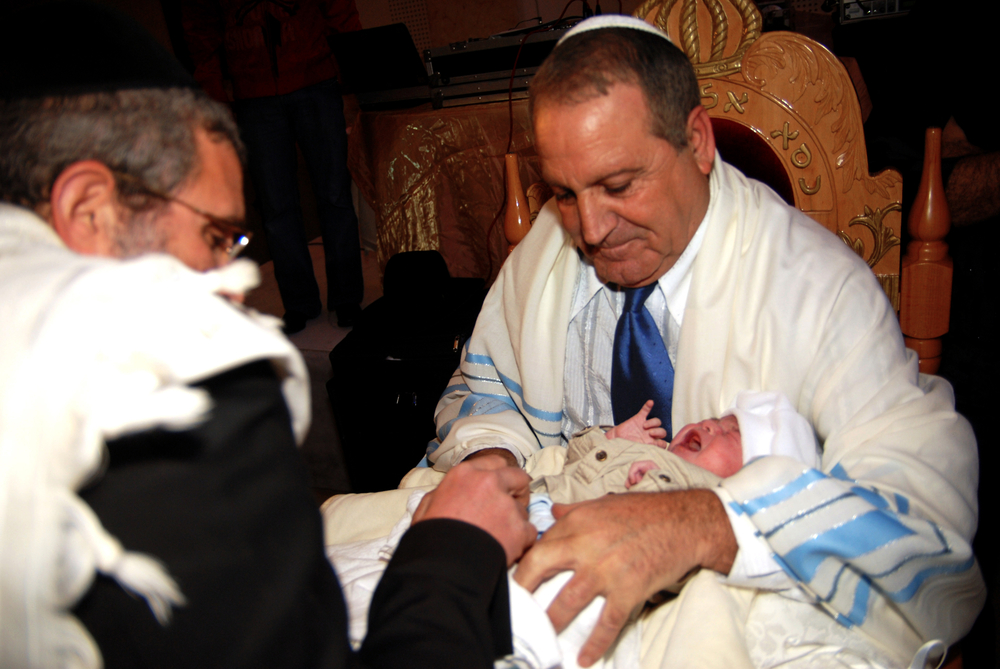This week’s Torah portion, Parshas Vayetzei, Yaakov leaves his home in Be’er Sheva and goes to Charan, as he is instructed at the end of last week’s parsha. On the way, he comes to “the place” as the sun is setting and sleeps there, gathering stones around his head. As he sleeps, he has a dream in which angels are climbing up and down a ladder connecting heaven and earth. Hashem appears to Yaakov and promises that He will give the land Yaakov is sleeping on to his descendants and they will be as innumerable as the dust of the earth and a blessing to all. In the morning, Yaakov raises the stone he slept on (as the many stones have turned into one overnight) and makes it an altar, establishing that spot as the house of Hashem and the future home of the Temples in Jerusalem. He then “lifts his feet” to journey outside the Land of Israel to Charan.
When he arrives in Charan, Yaakov encounters a well with a very large rock on it. He asked the other sheperds if they know his uncle Lavan (brother of his mother Rivka) and the shepherds point out Lavan’s daughter Rachel coming toward the well with her father’s sheep. Yaakov rolls the large stone off the well and gives the water to Rachel’s sheep, and he and Rachel fall in love at first sight. He tells her who he is and she brings him to her father. Yaakov stays with and works for his uncle Lavan by caring for his sheep. Although his older daughter, Leah, is yet unmarried, Lavan agrees to give Yaakov his younger daughter, Rachel, as a wife for 7 years of work. Knowing Lavan to be deceitful, Rachel and Yaakov share secret signs to be shared under the chuppah (marriage canopy) so that Yaakov can be sure his veiled bride is indeed Rachel. On the night of the wedding, Rachel gives Leah the secret signs so that she won’t be embarrassed under the chuppah. We learn from this the extreme selflessness of Rachel, willing to give up the man she loves so as not to embarrass her sister. Yaakov marries Rachel, a week later, after agreeing to work another seven years for Lavan.
Leah gives birth to six sons, Reuven, Shimon, Levi, Yehuda, Yissachar and Zevulun, as well as a daughter named Deena, while Rachel is unable to have children. Rachel gives Yaakov her handmaid, Bilhah, as a wife and she has two sons, Dan and Naftali. Leah gives Yaakov her handmaid, Zilpah, who has two more sons, Gad and Asher. Finally, Rachel’s prayers are answered and she gives birth to Yosef. Yaakov has now been in Charan for fourteen years, the full length of time he has promised to work for Lavan, and he wants to return home. Lavan convinces him to stay and offers him the brown and speckled sheep as payment for his work. Although Lavan tries to trick him, Yaakov becomes very wealthy and has many sheep in his flock. After six more years, afraid that Lavan will try to stop him again, Yaakov and family leave secretly. Lavan runs after Yaakov but is warned by Hashem in a dream not to hurt him. Lavan and Yaakov make a treaty at Mount Gal-Ed, the symbol of which is a pile of stones, and Yaakov is met by angels as he enters the Land of Israel.
This parsha includes so many amazing events, including the birth of 11 of the 12 tribes! For those who are new to the blog, in our home we put out the treats and the children each give us different explanations of how they connect to the parsha. Every treat this week has multiple explanations that come to mind. The feet lollipops symbolize the travels of Yaakov out of Israel and then back, his running away from his father’s house and then again from the house of Lavan, and the angels stepping up and down the ladder in Yaakov’s dream. The white gum drops are covered in little candy sprinkles. They could symbolize the angels in Yaakov’s dream and those who escort him back to Israel, the little stones that became one, as well as the sheep that Rachel is watching when she meets Yaakov and that Yaakov takes care of for Lavan for many years. Children who speak Hebrew might suggest that the white candies symbolize the meaning of the name of Lavan. The sour belts have stripes that when placed on their side could resemble a ladder, such as the ladder in Yaakov’s dream. They could also symbolize the veil that covered the face of Leah so that Yaakov did not realize that he was marrying the wrong sister. The nonpareils that are blue and white could symbolize the Land of Israel that Yaakov is promised, and 11 baby boys born in this week’s parsha. The pink and white nonpareils could symbolize the baby girl born in this week’s parsha. Together they could symbolize the little stones that become one as well as the four weddings described in the parsha. The candy lips symbolize the secret motions that Rachel told Leah so that she would not be embarrassed when marrying Yaakov and the ways in which Lavan tried to trick Yaakov in his speech, as well as the prayers of Rachel that are finally answered with the birth of Yoseph. The Boulder Bites could symbolize the large rock on top of the well that Yaakov lifted to feed Rachel’s sheep and the rock used to symbolize the treaty between Yaakov and Lavan, as well as the speckled and brown sheep that were promised to Yaakov. The speckles on the Boulder Bites are also reminiscent of the little stones becoming one as well. The Zillions symbolize the zillions of children promised to Yaakov that will be as numerous as the grains of sand. For the first time since this was first promised to Avraham, we see the birth of many children to Yaakov which will begin the fulfillment of the promise to make the Jewish People into a large nation. There are many other treats that could be used this week too! Bubble Monsters and candy rings are good choices. If you are interested in an activity, the children could build Yaakov’s ladder out of pretzel sticks and marshmallow fluff. If you would like to do a baking activity, this is a great week for Angel Food Cake. What ideas do you have? Please share them in the comments.
Shabbat Shalom,
Shayna Levine-Hefetz



Rachel Rosner
says:we also had gummy hearts for the love Yaakov had for Rachel
and chocolate rock candy for all the rocks in the parsha (the ones around Yaakov’s head, the one on the well, the one at Galeid …)
and we didn’t have it… but we thought popping candy or candy powder could be used for the sand (which the children of Yaakov will be as many as)
thanks for such a great idea …its really livening (and sweetening) our Shabbos table
Rachel Rosner